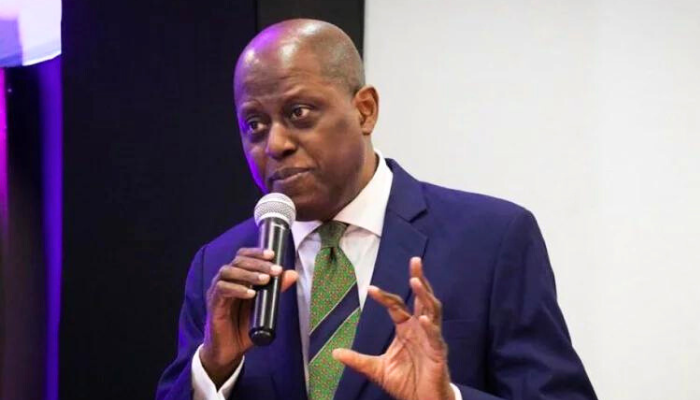Nigeria’s central bank left borrowing costs unchanged on Tuesday, opting to pause a nascent easing cycle to safeguard gains made against persistent price pressures.
The Monetary Policy Committee (MPC), led by Governor Olayemi Cardoso, voted to retain the benchmark interest rate at 27%. The decision effectively rules out further rate adjustments until at least 2026, pivoting away from the surprise cut delivered in September—the first in five years.
The move aligns with the consensus in a Condia survey of economists and comes as Africa’s most populous nation sees inflation decelerate for a seventh consecutive month. Headline inflation slowed to 16.05% in October, the lowest reading since March 2022, down from 18.02% year-on-year in September. Food inflation fell downwards as well, falling to 13.12% from 16.87% in September.
“The (committee’s) decision was underpinned by the need to sustain the progress made so far towards achieving low and stable inflation. The MPC reaffirmed its commitment to a data-driven assessment of development and outlook to guide future policy decisions,” Cardoso said during the 303rd MPC briefing held in Abuja.
Nigeria’s hold stance contrasts with broader regional trends. Peers such as South Africa and Zambia have moved to cut rates to stimulate growth. However, Nigerian policymakers remain wary of premature easing, prioritising price stability over immediate stimulus.
While the headline data is positive, analysts caution that the underlying economy remains fragile. Paul Alaje, a senior economist at SPM Professional, attributed the cooling numbers largely to “base year effects” rather than structural improvements.
“Is this time to rest?” another analyst asked. “There is risk on the horizon. Rent is rising. Even though food inflation is coming down, food prices are rising.”
The monetary pause provides a stable backdrop for the government’s fiscal manoeuvring. Africa’s largest oil producer recently raised $2.35 billion in eurobonds to capitalise on lower global lending costs. However, the country’s rising debt profile remains a concern for investors, who must now navigate a high-rate environment that is likely to persist into the new year.
Get passive updates on African tech & startups
View and choose the stories to interact with on our WhatsApp Channel
Explore




